You can try the following
set.seed(1)
(x <- matrix(sample(c(-1,1), 60, TRUE), ncol = 3))
# [,1] [,2] [,3]
# [1,] -1 1 1
# [2,] -1 -1 1
# [3,] 1 1 1
# [4,] 1 -1 1
# [5,] -1 -1 1
# [6,] 1 -1 1
# [7,] 1 -1 -1
# [8,] 1 -1 -1
# [9,] 1 1 1
# [10,] -1 -1 1
# [11,] -1 -1 -1
# [12,] -1 1 1
# [13,] 1 -1 -1
# [14,] -1 -1 -1
# [15,] 1 1 -1
# [16,] -1 1 -1
# [17,] 1 1 -1
# [18,] 1 -1 1
# [19,] -1 1 1
# [20,] 1 -1 -1
When the row sums are 3 or -3, multiply by the sign
rs <- rowSums(x)
cbind(x, ind = (abs(rs) == 3) * sign(rs))
# ind
# [1,] -1 1 1 0
# [2,] -1 -1 1 0
# [3,] 1 1 1 1
# [4,] 1 -1 1 0
# [5,] -1 -1 1 0
# [6,] 1 -1 1 0
# [7,] 1 -1 -1 0
# [8,] 1 -1 -1 0
# [9,] 1 1 1 1
# [10,] -1 -1 1 0
# [11,] -1 -1 -1 -1
# [12,] -1 1 1 0
# [13,] 1 -1 -1 0
# [14,] -1 -1 -1 -1
# [15,] 1 1 -1 0
# [16,] -1 1 -1 0
# [17,] 1 1 -1 0
# [18,] 1 -1 1 0
# [19,] -1 1 1 0
# [20,] 1 -1 -1 0
